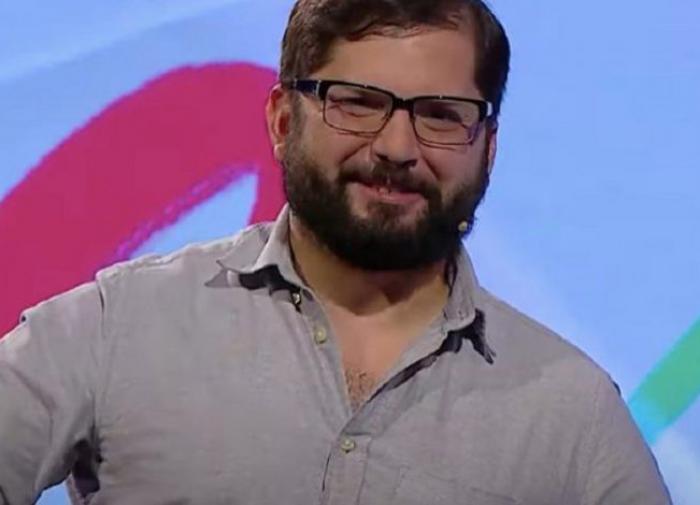Chile buries its own brainchild – neoliberalism
Chile is revisiting the plan, which was conceived by Salvador Allende, but then trampled as a result of the US-instigated coup.

Gabriel Boric brings hope back to Chile
Author`s name Lyuba Lulko
Chile has held landmark presidential elections. The country of Salvador Allende, Pablo Neruda, Luis Corvalan and Victor Jara — the symbols of the revolution of the 1970s — returns with the election of President Gabriel Boric.
Boric is only 36 years old, but he has defeated not only the followers of dictator Augusto Pinochet, but also the pseudo-socialists from the Socialist Party, who would always be opposed to the right, while walking the path of anti-popular neoliberalism.
His rival was Jose Antonio Kast — the son of a Wehrmacht soldier, who had fled Germany in the post-war years. According to Kast, there was no coup d'etat in 1973 — it was the people who got Allende out.
Boric won eleven percent of the vote against his opponent in the second round, gaining 55.87 percent of the vote. Kast gained 44.13 percent of the vote, and his 3.65 million supporters show that Boric will have a hard time proving that Chile was bidding a farewell to the Pinochet regime.
In one of his speeches, Chile's new leader said that the country was "the grave of neoliberalism" and pledged to "tax the rich."
Chile as a laboratory of neoliberalism
Latin America has become a test ground for Chicago boys. Chile was one of the first that got to taste the free market after Pinochet's bloody regime came to power. The country abandoned principles of state economic planning, as it could allegedly take the nation to totalitarianism. Chile also rejected the state social security system, including the pension system (Chile's private pension funds belong to US companies).
All natural resources were privatized. Chile is the only country in the world that has privatized water sources. However, taxation for multinational (i.e. American) companies was super soft.
The dismantling of the state and its withdrawal from the social sphere contributed to the growth of the gap between the richest and the poorest. According to the OECD (Organization for Economic Co-operation and Development), Chile has the worst income and wealth taxes in the world.
During the COVID-19 pandemic, Chile had to face a plethora of difficulties in terms of
- decrease in the income of the population,
- omnipresent unemployment,
- inability to recover at public expense,
- two-million-strong protests in 2019.
A new generation of politicians has come to the fore. They have formed the "I Approve Dignity" coalition, the main forces of which are the Broad Front movement and the Chilean Communist Party.
What Boric offers
Boric proposes a tax reform that will increase the tax burden for the super-rich by collecting an additional five percent of GDP. It will be used to expand the participation of the state in providing social security to the population.
In addition:
- a progressive income tax is introduced;
- the burden of tax collection is put on the VAT, which will be increased;
- exemptions and subsidies for fuel and other sectors, such as stock trading will be lifted;
- licensing fees will be introduced in mining, the most lucrative sector of the Chilean economy;
- the National Development Bank will be created;
- a state-owned lithium company will be established;
- a network of private medical companies will be abolished to create a universal health care system;
- the development of public schools and housing was announced.
Globalists are not going to like the new Chile
Thus, the new president is going to terminate the long 48-year reign of the fascist Pinochet regime, which has given Chile's economy and natural resources to the mercy of globalist companies.
The president will have to lead the creation of a new constitution, the work on which began following a referendum in October 2020. The referendum confirmed the desire of the majority of the population to bury the 1990 Magna Carta, written by the Pinochet regime.
The agreement on a new redistribution of power is not going to come easy. The left have a simple majority in parliament, and globalists own and control the country's wealth. They will resist.
A situation in which, as Boric put it, hope defeated fear fits into a series of significant changes in Chile, the backyard of the United States.
The state of affairs in Latin America after the fall of leftist governments in Brazil, Argentina, Bolivia and so on has been gradually changing in the opposite direction.
The victories of Alberto Fernandez in Argentina, Pedro Castillo in Peru, Xiomara Castro in Honduras, Luis Arce in Bolivia show that the leftist forces are coming back to power on the continent to displace the dominance of the United States. Washington may have to pay more attention to its own borders, rather than to the borders in Eastern Europe.
Читайте больше на https://english.pravda.ru/world/149985-chile/
No comments:
Post a Comment